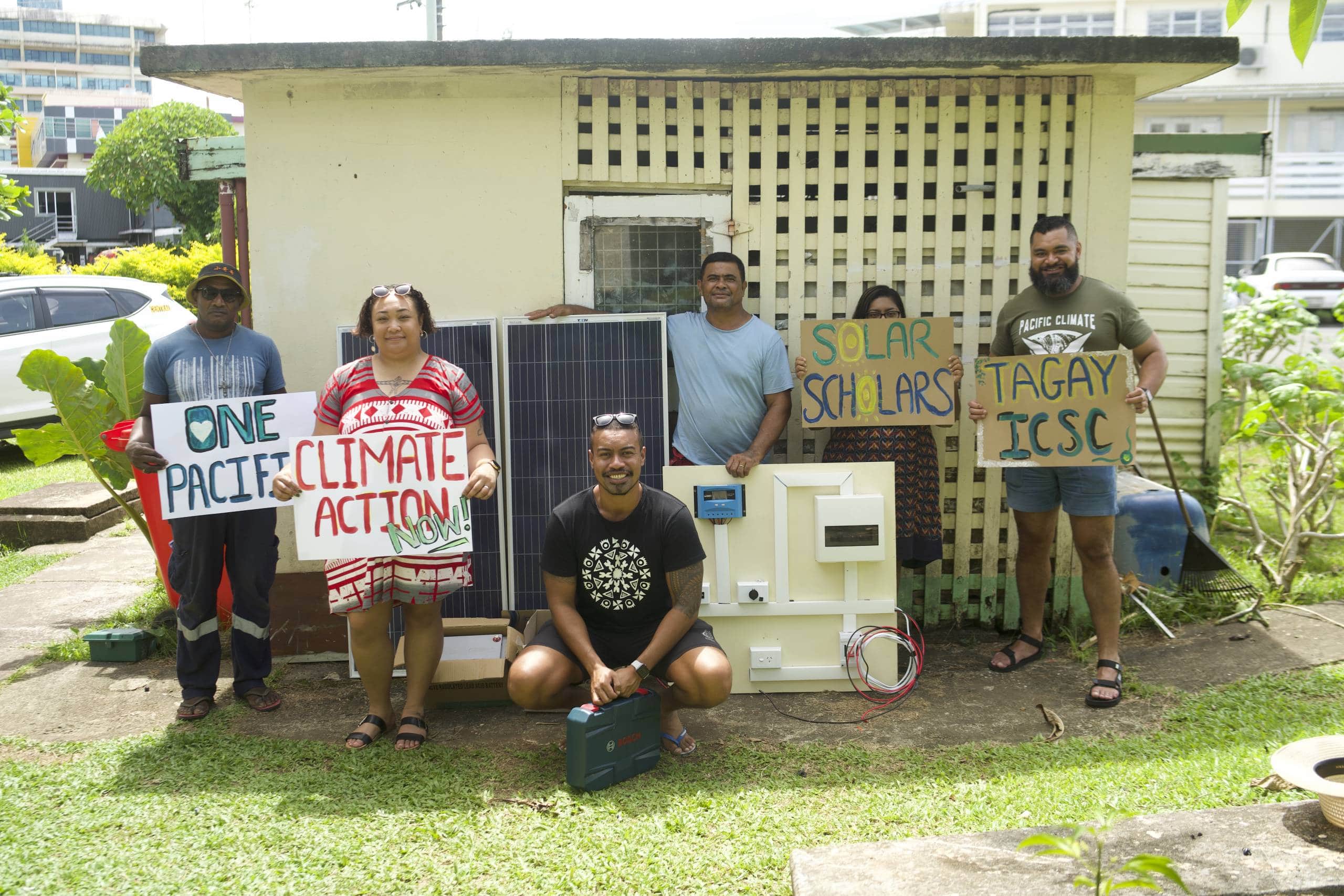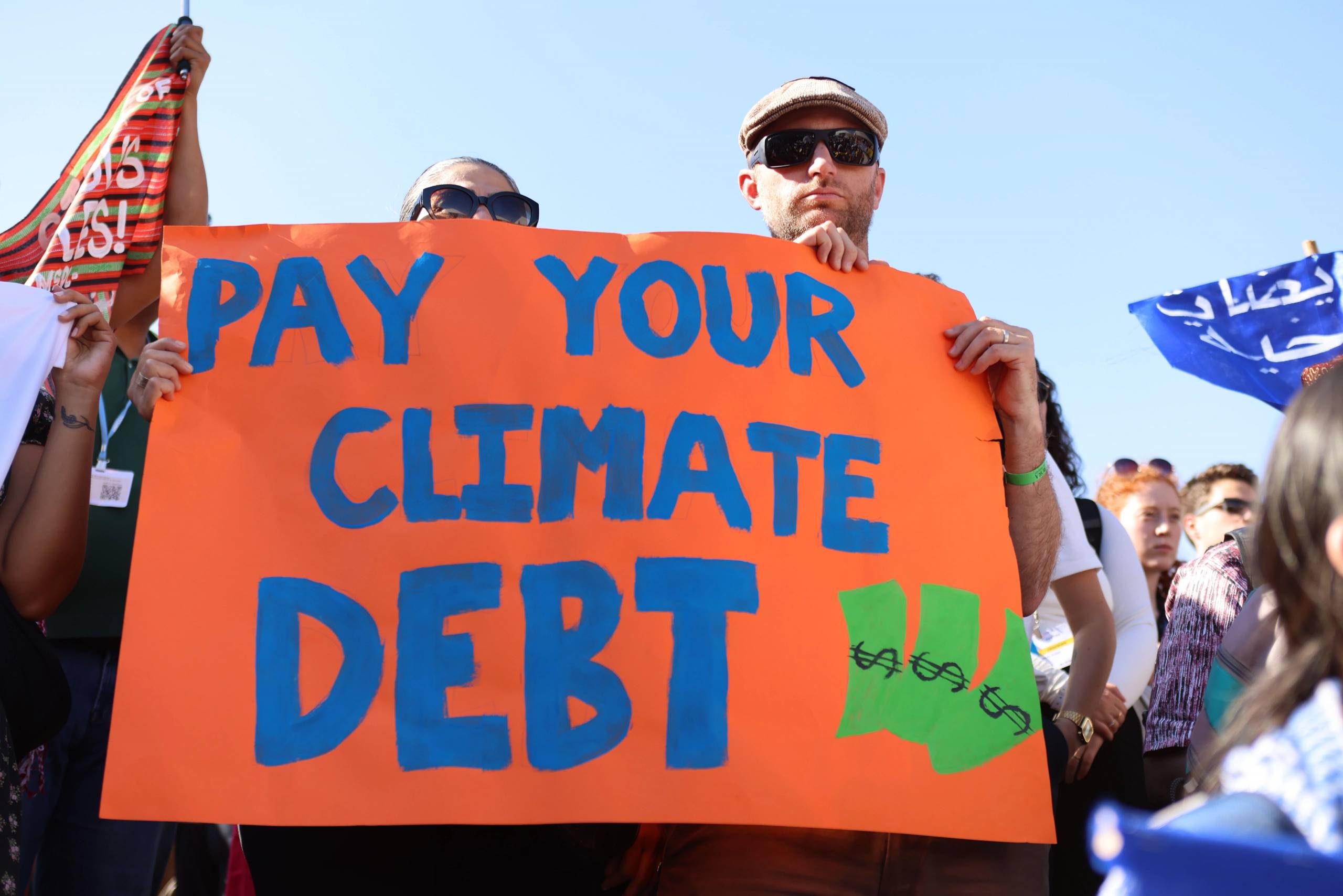The International Panel on Climate Change (IPCC), an UN-hosted forum that collects the world’s knowledge on the climate crisis from tens of thousands of scientific researchers at a global level, has spoken on March 20th. The publication of the 6th Synthesis Report marks the end of a cycle and the latest call for justice and an equitable implementation of climate solutions now.
There is nothing on the report that our movement hasn’t known for several years: we have been pointing our fingers at those responsible for the climate crisis, we have been feeling its disproportionate impacts, and we know what we need to do to solve it. But the IPCC report is important because it grounds our demands into research, it translates our lived experiences into measurable scientific data.
This is the report that the world will quote and claim to be following for the next several years. And our question today is: what does it say about climate justice?
What is justice?
In 2022, unprecedented monsoon rains and melting glaciers left 0ne third of Pakistan underwater. Almost 1,800 people died and millions lost their homes and livelihoods. After the disaster, food prices have gone up and are pushing millions more into extreme poverty. And yet, Pakistan is only responsible for 0.3% of historical global greenhouse gases (GHG) emissions. This is just one example of how the climate crisis is impacting people around the world. And this is the translation of the word injustice in real life. But what is justice?
As with all philosophical concepts, justice’s definition may be presented as elusive, but in this case, climate justice is clear as day: those responsible for the harm have to pay for the solutions, and fast. Those who profit from the devastation need to step aside and let communities take control of the new world we’re building together. And they need to do it now. This is not a choice: it’s a scientific imperative.
“Without urgent, effective, and equitable mitigation and adaptation actions, climate change increasingly threatens ecosystems, biodiversity, and the livelihoods, health and wellbeing of current and future generations.”
The IPCC is clear: “climate resilient development is enabled when governments, civil society and the private sector make inclusive development choices that prioritize risk reduction, equity and justice”. There’s no top-down solution. Real, equitable and just solutions are distributed and democratic.
Fighting communities
Climate justice is urgent. Tropical cyclones repeatedly hit communities in the Pacific, the Philippines, Madagascar and the Caribbean. Meanwhile, drought grips the Horn of Africa, and heatwaves disproportionately threaten vulnerable people, the working class, the elderly, women and children all over the world. Every fraction of a degree of extra warming will make things worse: solutions can’t wait.
These impacts are not equally distributed. As the IPCC confirms, the “largest adverse impacts” happen in “Africa, Asia, Central and South America, [Least Developed Countries], Small Islands and the Arctic”, and, at a global level, “for Indigenous Peoples, small-scale food producers and low-income households”. And, guess what? Those are exactly the people and regions that are least responsible for the climate crisis. It’s time for the balance to be restored.

Decades of injustice
The fossil fuel industry has known that their activities were leading us to catastrophic climate change for at least six decades, but not only do they not pay for it: all the rest of us pay them. And this is not 350’s opinion: it’s in the latest IPCC report. “Public and private finance flows for fossil fuels are still greater than those for climate adaptation and mitigation”, the scientists say. Fossil fuel companies have posted record profits this year. This is not justice.
Instead, science says that we need to act immediately, coordinately, and focus on vulnerable communities and the Global South. This is not a political position, it’s a scientific fact. The IPCC says that we need “improved access to adequate financial resources, particularly for vulnerable regions, sectors and groups, and inclusive governance and coordinated policies”.
In real life, that translates into changing laws and policies to remove the barriers facing community-centred renewable energy projects. It means redirecting investments from coal, oil and gas into solar and wind energy initiatives that are rooted in principles of justice. It’s providing access to clean, reliable and affordable energy to everyone, and creating opportunities for workers to be part of a just transition. Climate justice is not top-down, it comes from the empowerment of those communities in the decision-making. It doesn’t happen in once-a-year events. It happens every day, everywhere, or nowhere at all.
Pay for solutions now!
Most of the money invested in climate solutions is spent on mitigation measures, such as renewable energy sources, but it’s not enough. The IPCC report is clear. “In 2018, public and publicly mobilised private climate finance flows from developed to developing countries were below the collective goal under the UNFCCC and Paris Agreement.” The part of the world that bears the responsibility is not paying the bill, and thus, the window of opportunity to act is narrowing.
In terms of adaptation, the science is loud and clear too: the reasons why communities can’t access what they need to protect themselves against the worst impacts of the climate crisis are not a lack of available solutions. The reasons are, among others, “limited resources, lack of private sector and citizen engagement, insufficient mobilization of finance […], low climate literacy (and) lack of political commitment”. Maladaptation affects, again, those least responsible for climate change.

Climate justice is not a debate. It’s a scientific imperative that requires implementing solutions today. “Climate resilient development pathways […] are progressively constrained by every increment of warming, in particular beyond 1.5°C”.
Climate justice is to contain global heating under 1.5ºC and every fraction of a degree thereafter.
Climate justice means that those who have profited and continue to profit from climate harm must immediately start paying to protect those left in a position of vulnerability. And the first step is to be organized in order to demand solutions and be involved in their just implementation. Organize. Mobilize. Join us!